1. collaboration related
1.1. Act as a liaison between the business management / organizational science worlds [think: consultancies and academia] and the Consortia-pedia project
1.1.1. Ongoing project basis
1.1.1.1. Research and report back to Mark on latest news, tools, developments, etc.
1.1.1.1.1. Purpose: to keep taking research-by-consortium to higher and higher levels
1.1.1.1.2. Flipside: Maybe I could also take specific issues that existing or would-be consortia have to the larger management arena for advice, guidance, etc.?
1.1.1.1.3. 3-month trial?
1.1.2. One shot deal
1.1.2.1. I could create an "additional tools to aid consortia managers" piece of some sort. (for collaborating more effectively)
1.1.2.1.1. What are those additional tools? Some examples:
1.1.2.1.2. Venue / distribution
1.1.3. Examples of orgs that have valuable know-how and know-what to offer
1.1.3.1. Tapscott Group
1.1.3.2. The Bridegspan Group
1.1.3.3. FSG Consulting
1.1.3.4. McKinsey & Company
1.1.3.5. Accenture
2. education and training related
2.1. Develop a "discovery learning" product for purposes of imparting Consortia-pedia know-how and know-what. Said product would be a training offering for consortia managers and would-be managers.
2.1.1. Discovery learning?
2.1.1.1. a powerful instructional approach that guides and motivates learners to explore information and concepts, embrace new knowledge, and apply new behaviors "back on the job"
2.1.1.2. Well-designed sessions are highly experiential and interactive, using stories, games, simulations, visual maps and other techniques to grab attention, pique curiosity, build interest and lead participants along a journey of discovery toward new thinking, actions and behaviors.
2.1.2. Cool tools. Note: these are closely related and sometimes overlap.
2.1.2.1. learning / discovery maps
2.1.2.1.1. Colorful table-sized "maps" that serve as the centerpiece of a learning experience. In a classroom setting, participants work together (with a facilitator) to explore map content, discuss issues, draw conclusions, and develop new insights, motivation and commitment. Competitive games, challenge scenarios, realistic simulations, videos and online activities can be added to the experience to build long-term knowledge retention and influence behaviors on the job.
2.1.2.1.2. examples:
2.1.2.2. games
2.1.2.2.1. business games
2.1.2.2.2. example: Zodiak, game of business strategy for hospitals
2.1.3. Leading practitioners
2.1.3.1. Root Learning
2.1.3.2. XPLANE
2.1.3.3. Paradigm Learning
2.1.4. What I could do:
2.1.4.1. I could do what the leading practitioners do, only -- for cheap!
2.1.4.1.1. develop prototype products
2.1.4.1.2. experiment to learn which training approaches do or don't work
2.1.4.1.3. help to make training a new FasterCures offering
2.1.4.1.4. faciliate training sessions
2.1.4.2. My background lends itself well to doing all o' these things!
3. RE: engaging patients, parents, constituents and citizens
3.1. Play a part in both the "patient centeredness" and "democratizing science" P4C panel discussions.
3.1.1. Background
3.1.1.1. In general, my Ever-Expanding Circles of Impact "framework" is about organizations opening themselves up to additional help from the outside.
3.1.1.1.1. I'm in the process of searching for ways to make it easier for orgs -- consortia included -- to meaningfully engage with / elicit help from talented outsiders.
3.1.1.1.2. relevant graphic taken from my (complex folded) "brochure"
3.1.1.2. All citizen-science and patient-centered partnership efforts sit and fit within said framework.
3.1.1.2.1. RE: taking patient needs and preferences into account, for example, I can enumerate specific tools that are available for doing so. For gathering input an organization may: do surveys, ask poll questions, convene focus groups, do "human-centered" ethnographic research...and more.
3.1.2. What I could do at / for P4C conference
3.1.2.1. I would like, somehow, to communicate my ideas to attendees.
3.1.2.1.1. Topic: When and how to use which engagement tools and activities
3.1.2.1.2. I don't think it'd be appropriate for me to be a panelist; my work is only supplementary.
3.1.3. My beliefs / hopes?
3.1.3.1. Yes, there *is* a significant amount of untapped horsepower (brainpower) out there!
3.1.3.2. It's a matter of doling a better job of orchestrating it.
3.1.3.3. We get what we celebrate.
3.2. I could try to help FasterCures open up to additional help from individuals outside itself. Key question: What work would need to be done to amplify your impact beyond belief?
3.2.1. FasterCures overall
3.2.2. Consortia-pedia only
